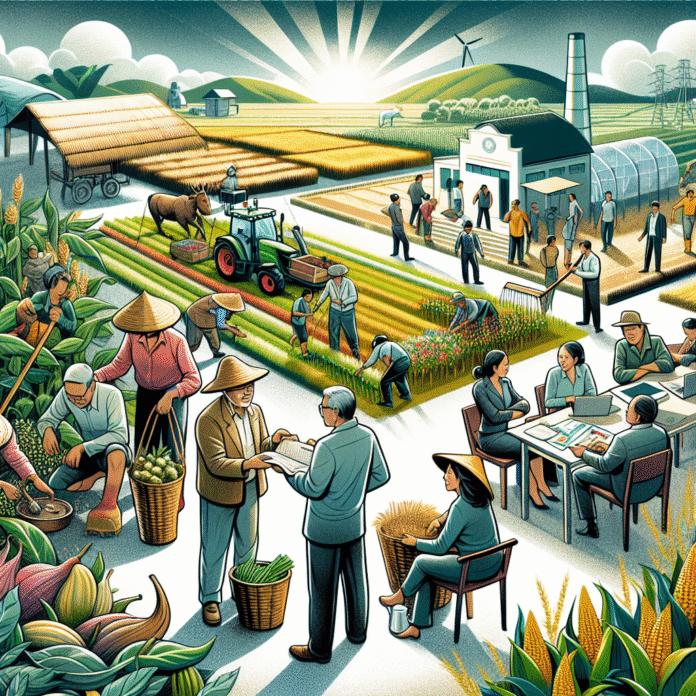Empowering Farmers and SMEs for Sustainable Economic Growth
Empowering Farmers and SMEs: Crucial Drivers of Sustainable Economic Growth
In the quest for sustainable economic growth, the empowerment of farmers and small and medium-sized enterprises (SMEs) stands out as a vital strategy. These two sectors play an essential role in fostering innovation, creating jobs, and enhancing food security, ultimately contributing to a more robust and resilient economy.
The Role of Farmers in Economic Development
Farmers are the backbone of many economies, particularly in developing regions. By investing in agricultural technology, education, and resources, we can enhance productivity and ensure food security. Sustainable farming practices, such as organic farming and agroforestry, not only increase yield but also protect the environment. Governments and organizations must prioritize training programs that equip farmers with modern techniques and tools, enabling them to adapt to changing climate conditions and market demands.
Support for SMEs: The Engine of Job Creation
Small and medium-sized enterprises are often referred to as the engine of economic growth, accounting for a significant percentage of employment in many countries. Supporting SMEs through access to finance, mentorship, and favorable regulatory environments is crucial for fostering innovation and entrepreneurship. Additionally, digital transformation has opened new avenues for SMEs, allowing them to reach broader markets and compete on a global scale. Policies that encourage technology adoption and provide training in digital skills can significantly enhance the capabilities of these enterprises.
Synergy Between Agriculture and SMEs
The intersection of agriculture and SMEs presents unique opportunities for synergistic growth. By promoting agribusinesses—small enterprises that operate within the agricultural sector—governments can create a more integrated economy. Initiatives that support local food production and processing not only enhance food security but also stimulate local economies by creating jobs and fostering community development.
Challenges and Solutions
Despite their potential, both farmers and SMEs face numerous challenges, including limited access to financing, inadequate infrastructure, and regulatory hurdles. Addressing these issues requires a multi-faceted approach. Financial institutions should develop tailored loan products that cater to the specific needs of these sectors, while governments must invest in rural infrastructure and streamline regulations to foster a more conducive business environment.
Conclusion
Empowering farmers and SMEs is not just a strategy for economic growth; it is a pathway to sustainability and resilience. By investing in these sectors, we can create a more equitable society where everyone has the opportunity to thrive. Collaborative efforts from governments, private sectors, and communities are essential to build a sustainable future that benefits all.
